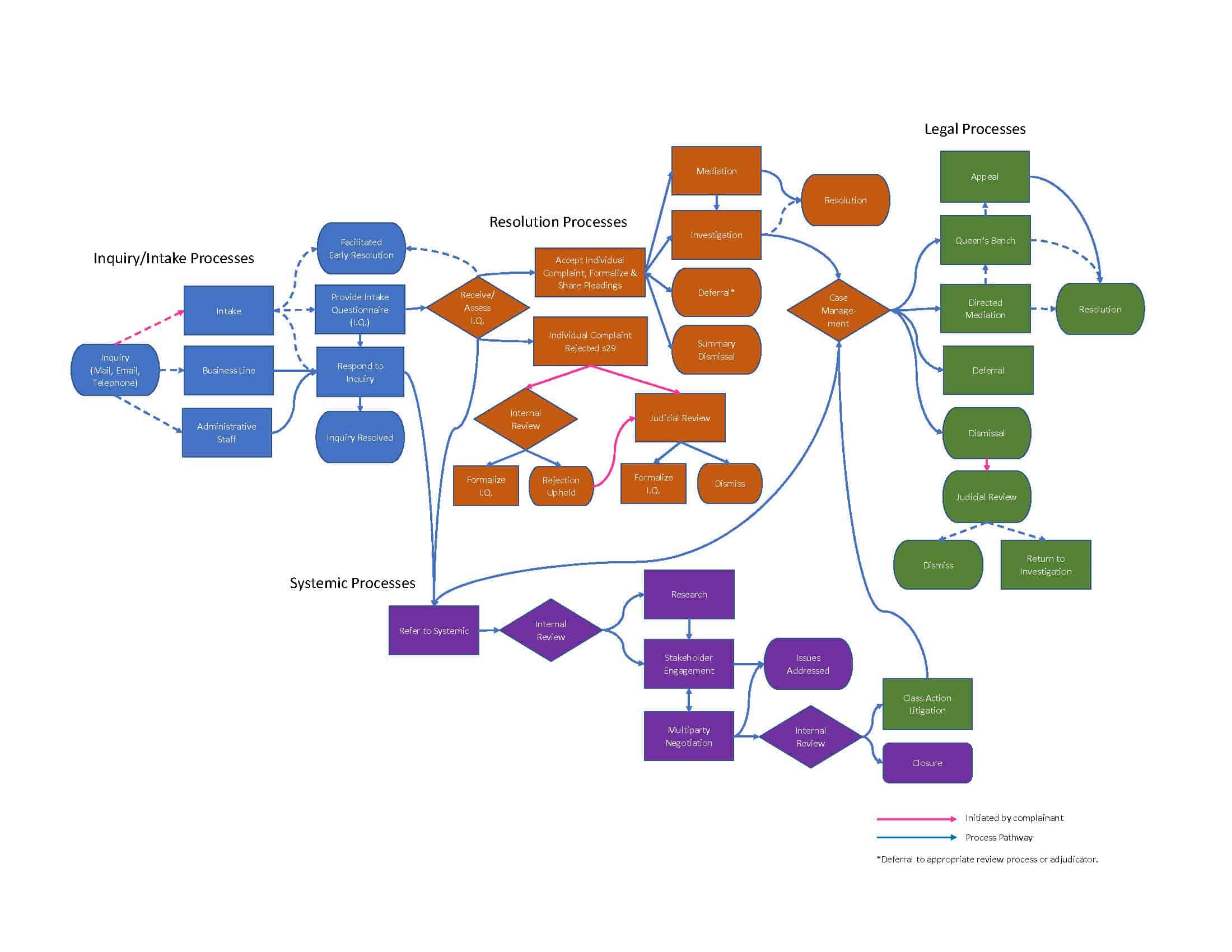Pre-complaint Resolution
As the point of first contact with a complainant, the intake process begins. The Commission’s intake officers are well-placed to see an opportunity for a timely resolution that may not require a complaint to be formalized. In these situations, the intake officer has the authority to see if a “pre-complaint” resolution can occur.
The pre-complaint process is for time-sensitive complaints that can usually be resolved quickly, sometimes in just a few phone calls. It can, for example, put the complainant back on course with their employer without any significant negative consequences. Opening the door to communication through an intake consultant can facilitate these situations.
The intake consultant has a duty to remain neutral during the pre-complaint process – informing the two sides in an unbiased and impartial way sets the stage for a better conversation.
As well, pre-complaint communication can, for example, serve to educate employers. Employers are often more aware of Employment Standards legislation than they are of human rights legislation. While an individual may have their own belief of what human rights are, or ought to be, it’s about what is legislated in law. Describing the process and gravity of human rights violations is important in helping people understand the severity of cases that move on to the Court of King’s Bench.
Mediation and Settlement
Parties can resolve complaints through mediation or settlement at any stage in the process – before or at intake, during or after an investigation. In many cases, these negotiations provide a faster, more co-operative method of resolving complaints than investigations or hearings.
Investigation
In an investigation, an impartial investigator talks to witnesses and examines records to find out what happened. The investigator then refers the case to the Chief Commissioner who decides whether the case should be mediated, dismissed, sent to a hearing, or dealt with in another way.
Directed Mediation
In most cases, and before a hearing takes place, the parties will be directed to engage in one further mediation attempt. In directed mediation, the respondent is asked to provide a final offer of resolution. If the offer made is reasonable in the determination of the Commission, and if the complainant does not accept it, the Chief Commissioner will dismiss the complaint. Where a reason-able offer is not made, the matter will proceed to hearing, as directed by the Chief Commissioner
Hearing of Cases
The Court of King’s Bench conducts hearings that are referred to it by the Commission. The Commission’s lawyer will present the case in the Court for the complainant free of charge, though complainants may hire a lawyer to represent them if they so choose. Respondents either hire a lawyer to represent them in court or they may represent themselves.
Saskatchewan Human Rights Commission Complaint Process Flow Chart
For a downloadable PDF version of the Commission’s complaint process flow chart click here.

